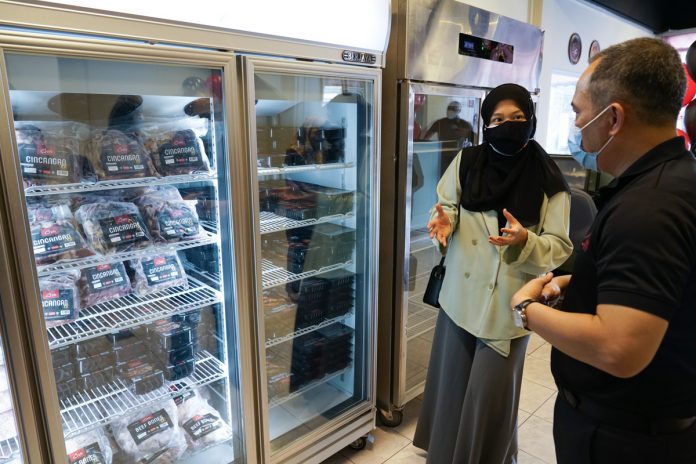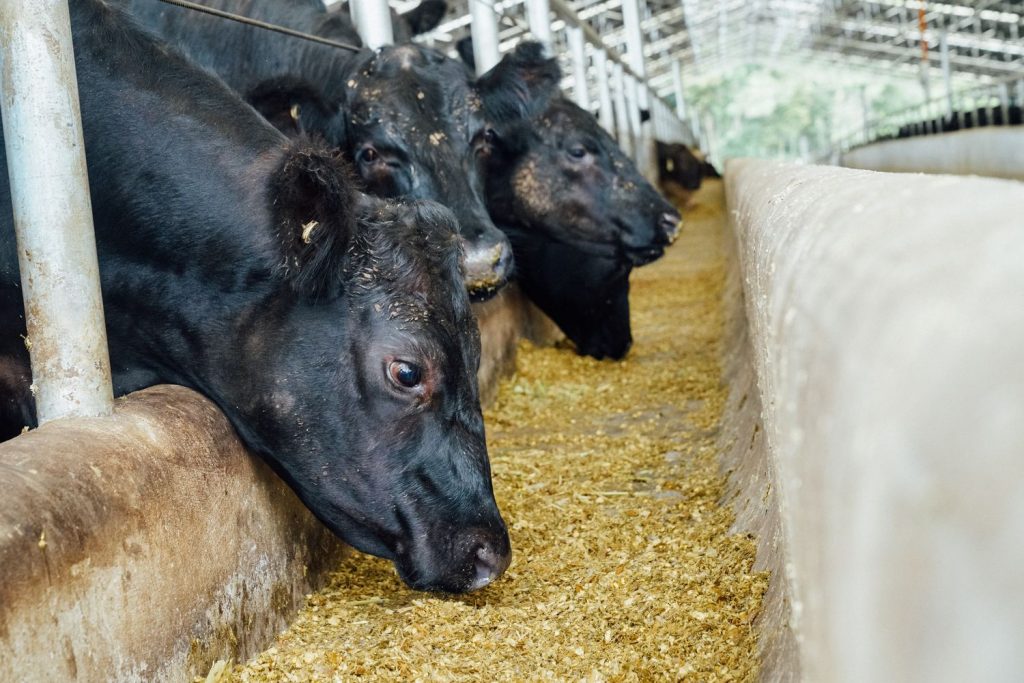
Brunei’s biggest meat producer PDS Abattoir has introduced an online retail service to go direct-to-consumer to fulfil growing demand.
PDS set up their WhatsApp business account and revamped their ground floor office into a storefront to begin selling directly to consumers last week, with a webstore also in the works.
Customers can browse and order through their catalogue on WhatsApp (+6738750032) and make payment through BIBD bank transfer (00015010038401).
Orders will then be processed for customers to pick up at their headquarters in Gadong. Walk-ins to the store are not permitted during the COVID-19 transition phase.
At present, the online store stocks six high-demand frozen products in 10 options: minced beef, chopped beef (cincangan), beef bones, beef burgers (45g and 115g patties), corned beef, and beef balls. These products are priced between $2.50 to $11, which are on the affordable-end of PDS’ range.
PDS may also start stocking whole or portioned cuts of beef and introduce delivery, based on customer feedback and demand.
PDS’ main revenue currently comes from supplying to supermarkets nationwide. PDS General Manager Hj Sabirin Othman said the decision to set up an online sales channel is aimed at satisfying consumers who specifically want PDS products.
These include customers who have trouble finding PDS products at supermarkets, whose stock levels fluctuate based on PDS supply or ongoing customer purchases.
“Previously (before the second wave of COVID-19) people would walk in (to our Tutong farm) asking to purchase directly,” he said. “Since we are in a critical position (of supplying the nation’s meat) we had to stop walk ins (to prevent risking our operation to a potential outbreak).”





The launch of PDS’ online service is also in anticipation of increased year-end demand. The storefront is located at No.5, Ground Floor, Bangunan Dyg Hjh Adi III, Spg 15, Jln Gadong.
PDS transforms operation during pandemic, but imports continue to be challenging
PDS has taken on the mantle of supplying the nation’s meat since the first outbreak of COVID-19 in March 2020.
As frozen imports – typically Brunei’s main source of meat – were suspended because religious officers could not travel abroad to ensure halal compliance, the government engaged PDS to fill in the gap by importing live animals instead.
These livestock were then slaughtered by PDS and supplied nationwide, with the byproducts processed into items such as cold cuts, burgers and sausages. Since PDS imports only live Australian cattle, the quality and shelf price of their beef products are higher than the previously imported frozen beef from India.
Earlier this year, the government began easing frozen imports, but the model of live import and local slaughter continues to be the primary source of meat in the country.
To increase their value chain and lower the cost of beef, PDS upgraded their facilities to introduce feedlotting; where younger, smaller cattle are imported, then fattened in the country for several months before slaughter and sale.

PDS has a five year multi-million dollar plan to build feedlotting capacity to 7,000 cattle, which will see their slaughtering capacity also grow to 24,000 cattle annually.
Alongside the feedlotting programme, PDS has also doubled the capacity of its processing plant, as part of their long-term plan to not only fulfill local demand, but potentially export to countries who value halal products.
However Hj Sabirin admitted that the pandemic has seen them routinely dealing with several import shortages and delays, so their focus is meeting local demand fully before considering exports.
“Last year we transformed the way we operate (in what would’ve taken) one to two years; we are forced to speed up (because of COVID), we invested substantially,” he said at the launch of their online service. “Right now (we are awaiting) raw materials (livestock) so we can push more products in 2022.”
With its new direction, expansion and future plans, PDS re-branded last February with a new tagline – the home of good beef.






![[Video] Brunei’s economic diversification journey under Wawasan 2035 Second MOFE Minister YB Dato Amin explains Brunei's divesrificaiton strategy.](https://www.bizbrunei.com/wp-content/uploads/2025/03/Bruneis-future-vision-Wawasan-2035-Thumbnail-100x70.jpg)




